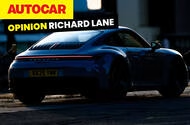Why Does the Porsche 911 Dominate Car Conversations So Much?
If you’ve ever scrolled through car news or chatted with an auto enthusiast, you’ve probably noticed something: the Porsche 911 seems to pop up everywhere. Some folks are a little tired of hearing about it, and honestly, that’s understandable. But there’s more to this story than just media hype or brand loyalty. Let’s dig into why the 911 keeps stealing the spotlight—and why, for now, it kind of deserves it.
What Makes the Porsche 911 So Enduring?
Start with the basics: the 911 has been around for over six decades, and it’s never really lost its magic. Sure, it’s evolved—sometimes in ways that ruffled feathers among purists—but the core recipe remains. Rear engine, distinctive silhouette, and a driving experience that’s equal parts thrilling and approachable.
But here’s the kicker: the 911 isn’t just about nostalgia. It’s a car that’s managed to stay relevant by constantly reinventing itself. Whether you’re talking about the everyday Carrera S, a track-focused GT3, or a wild Turbo S, there’s a 911 for nearly every kind of driver. That adaptability is rare in the sports car world.
And it’s not just talk. According to data from JATO Dynamics, the 911 outsold many of its rivals in Europe and North America in 2023, despite rising prices and tough emissions regulations. That’s not just brand power—it’s proof that the formula works.
Is There Really No Competition Left for the 911?
This is where things get interesting—and a little bleak. Not so long ago, the 911 had a whole crew of rivals nipping at its heels. Think Jaguar F-Type, Nissan GT-R, Lotus Evora, Mercedes-AMG GT, Aston Martin V8 Vantage, Audi R8, Maserati GranTurismo, and even the Lexus LC 500. Each brought something unique to the table, from British charm to Japanese engineering wizardry.
Fast forward to today, and the landscape has shifted dramatically. The F-Type, GT-R, LC 500, and R8 have all bowed out or are on the way out. The AMG GT now comes only with all-wheel drive, which changes its character. The Aston and Maserati? Their prices have soared, putting them out of reach for many enthusiasts. The Lotus Emira is lovely, but it’s lost the practicality that made the Evora a genuine 911 alternative.
So what’s left? The BMW M4 CS is a fantastic machine—fast, fun, and priced close to the 911—but it’s a different animal. It’s more raw, less refined, and, let’s be honest, not quite as versatile. Even the new right-hand-drive Corvette, as good as it is, feels a bit too brash for the understated 911 crowd.
How Does This Lack of Rivals Affect the 911—and the Market?
You might think Porsche is loving this situation. After all, less competition means more sales, right? But it’s not that simple. Competition is what pushes brands to innovate, to refine, to take risks. When the 911 had a full field of rivals, every new generation felt like a response to something—a little lighter here, a bit more power there, a tweak to the handling balance.
Without that external pressure, there’s a risk of stagnation. Porsche’s engineers are some of the best in the business, but even they need a reason to push the envelope. And for car enthusiasts, the lack of choice means less excitement, fewer group tests, and a narrower range of experiences.
It’s a bit like going to a restaurant and finding only one dish on the menu. Sure, it’s a great dish, but variety is the spice of life.
Are There Any Hopeful Signs for Sports Car Fans?
All is not lost. There are glimmers of hope on the horizon. Lexus is rumored to be developing a new V8 coupe to homologate a GT3 race car—something that could shake things up if it makes it to production. AMG is working on a new CLE coupe with a V8, though expectations are tempered by concerns about weight and complexity.
And then there are the wildcards: electric sports cars, new entrants from unexpected brands, and the possibility that some of the old guard might stage a comeback. The sports car market has always been cyclical, and while things look a little sparse right now, history suggests that new challengers will eventually emerge.
Why Do Enthusiasts and Journalists Keep Talking About the 911?
It’s not just habit or laziness. The 911 remains a benchmark because it’s so consistently good at what it does. It’s fast, comfortable, practical (for a sports car), and, crucially, it feels special without being precious. You can drive it hard on a back road, cruise at high speed on the autobahn, or just use it for a long-distance road trip. It’s a partner, not just a toy.
Journalists, too, crave variety. They want to compare, contrast, and debate. When the field narrows, those comparisons become less meaningful. The 911 ends up being the default answer not because it’s the only choice, but because it’s the only one left standing in its segment.
What’s the Takeaway for Drivers and Car Lovers?
If you’re tired of hearing about the 911, you’re not alone. But there’s a reason it keeps coming up: it’s the last of its kind in a segment that used to be crowded with contenders. That’s both a testament to Porsche’s engineering and a call to action for other brands.
So here’s hoping that the next few years bring some fresh faces to the party. In the meantime, the 911 will keep doing what it does best—delivering a driving experience that’s hard to match, and giving us all something to talk about. If you’re looking for a sports car that’s more than just a weekend toy, it’s still the one to beat. And until the competition returns, don’t be surprised if you keep seeing it in your feed.

